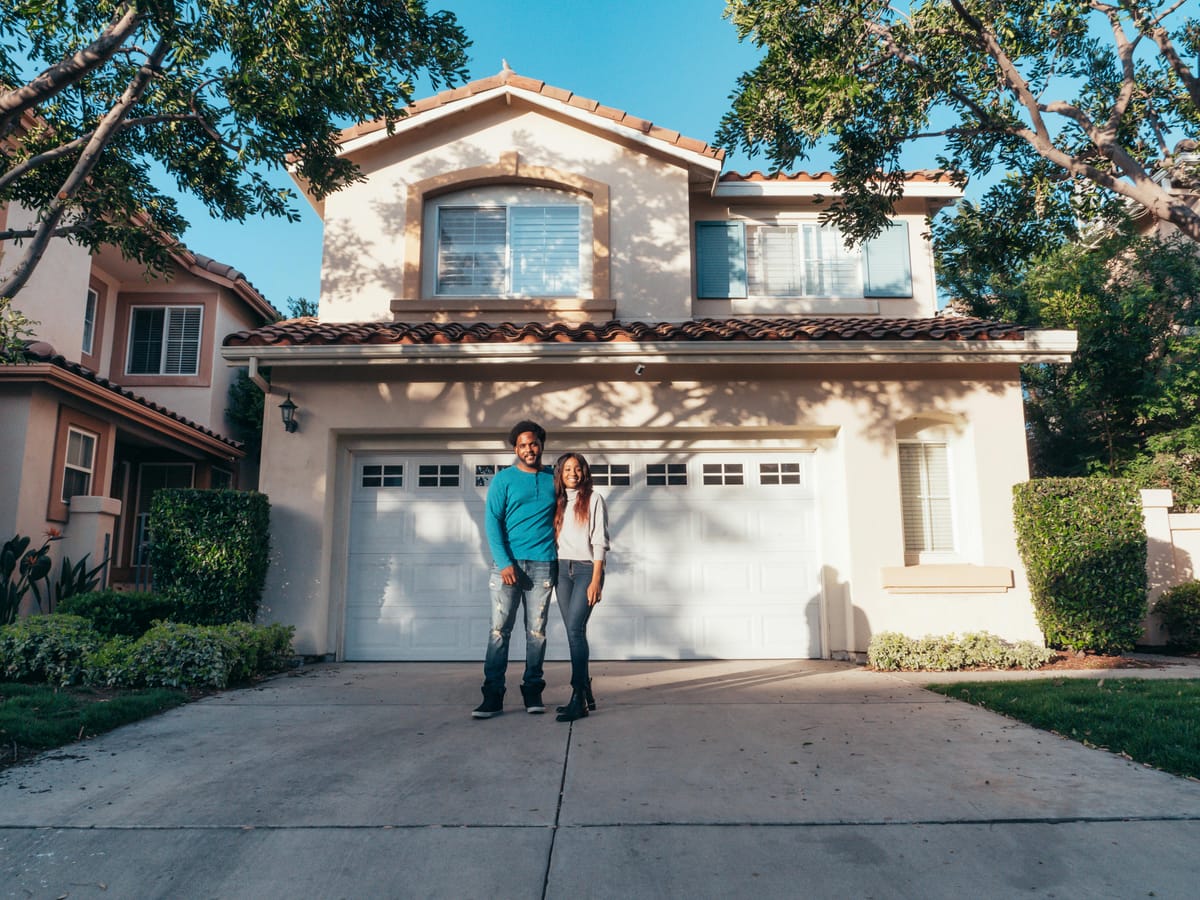How Much Savings Should You Have Before Buying a House?

Buying a home is a significant financial milestone, and having a clear understanding of how much you need to save before purchasing one can help you feel more confident about the process.
In this post, we'll break down what to consider when saving for a home, key factors that influence your savings goals, and tips for preparing yourself financially.
How Much Should You Save for a House?
The amount of money you'll need to save for a house can vary depending on a few key factors. While a standard recommendation is to save for a 20% down payment, there are other important costs to consider that can influence how much savings you need:
- Home Price: Depending on where you you want to live, home prices can vary drastically. How much you need to save for a home will be proportional to the house closing costs: a lower-priced home will need a smaller down payment, while a more expensive home will require a larger savings goal.
- Down Payment: If you go the traditional route, aiming for a 20% down payment is often ideal. While some loan programs offer smaller down payments—sometimes as low as 3% or 5%— keep in mind that a smaller down payment might lead to higher monthly payments and potentially the need for private mortgage insurance (PMI).
- Closing Costs and Additional Fees: Don’t forget about closing costs, which are usually around 2-5% of the purchase price. Additionally, you may have costs related to moving, home inspections, and other administrative fees.
In short, while the down payment is a big part of what you’ll need to save, these other costs also need to be factored into your total savings goal.
Factors That Affect How Much You Need to Save
When saving for a home, there are several factors that influence how much you should aim to save before you start looking at properties:
- Home Price: If you're looking in a competitive or high-cost market, your savings goal may need to be adjusted accordingly.
- Down Payment Requirements: Depending on the loan you plan to use, your down payment may range from a few percent to 20%. Understanding the type of mortgage you're applying for is key to determining how much you'll need to save upfront.
- Credit Score: A higher credit score can lead to better loan terms and lower interest rates. If your score needs some work, you may want to focus on improving it before beginning your home search.
- Debt-to-Income Ratio: Lenders want to ensure you have enough income to manage both your mortgage payments and existing debt. If your ratio is high, you may need to save a larger down payment or adjust your home-buying plans.
Saving for a Down Payment vs. Other Costs
While your down payment is likely the first thing you think about when saving for a home, it’s essential to remember there are other ongoing and hidden costs that come with homeownership:
- Hidden Costs: After buying a home, you may encounter unanticipated expenses such as fixing a leaking roof, replacing old appliances, or repairing plumbing. It's a good idea to set aside extra savings for unexpected home repairs and emergencies.
- Ongoing Expenses: In addition to the purchase price and closing costs, you'll need to consider ongoing expenses like property taxes, homeowners insurance, and utility bills. These costs may increase after you move in, so make sure you're prepared for them as part of your overall budget.
These costs add up quickly, so it’s essential to build a comprehensive savings plan that includes not just the down payment, but also these extra financial obligations.
How Long Should You Save Before Buying a House?
The amount of time it will take to save for a house depends on your individual financial situation. On average, most people save for 1 to 3 years, but this can vary based on factors like income, debt, and the price of the home you want to buy.
Here are some tips for creating your timeline:
- Income and Expenses: The more you’re able to save each month, the faster you’ll reach your goal. If you have high income and low living expenses, you may be able to save faster. On the other hand, if you're carrying debt or have high living costs, it may take longer.
- Balancing Other Financial Goals: While saving for a home is important, it’s also crucial not to neglect other financial goals, like building an emergency fund or saving for retirement. Finding the right balance is key to long-term financial stability.
Common Missteps to Avoid When Saving for a House
There are several mistakes you’ll want to avoid as you work toward your goal of homeownership:
- Overestimating How Much You Can Afford: It's easy to get caught up in the excitement of buying a home and stretch your budget too thin. Be realistic about what you can afford, taking into account your income, monthly expenses, and the ongoing costs of homeownership.
- Neglecting Other Financial Priorities: Don’t put all your resources into saving for a home at the expense of other financial priorities, such as retirement or debt reduction. Striking a balance between saving for a home and managing other goals is essential.
- Ignoring Long-Term Costs: It’s easy to focus solely on the upfront costs, but don't forget about the ongoing expenses of homeownership. Budget for maintenance, property taxes, and potential increases in utility costs to ensure you're prepared for all aspects of homeownership.
Closing Thoughts
Knowing how much savings you need before buying a house is an essential part of the home-buying journey. While the down payment is a large portion of the savings you’ll need, it’s also important to account for closing costs, ongoing expenses, and potential repairs.
Start by setting a realistic savings plan and timeline that fits your financial situation. With consistent effort and a clear strategy, you’ll be well on your way to homeownership without any unexpected financial surprises.




